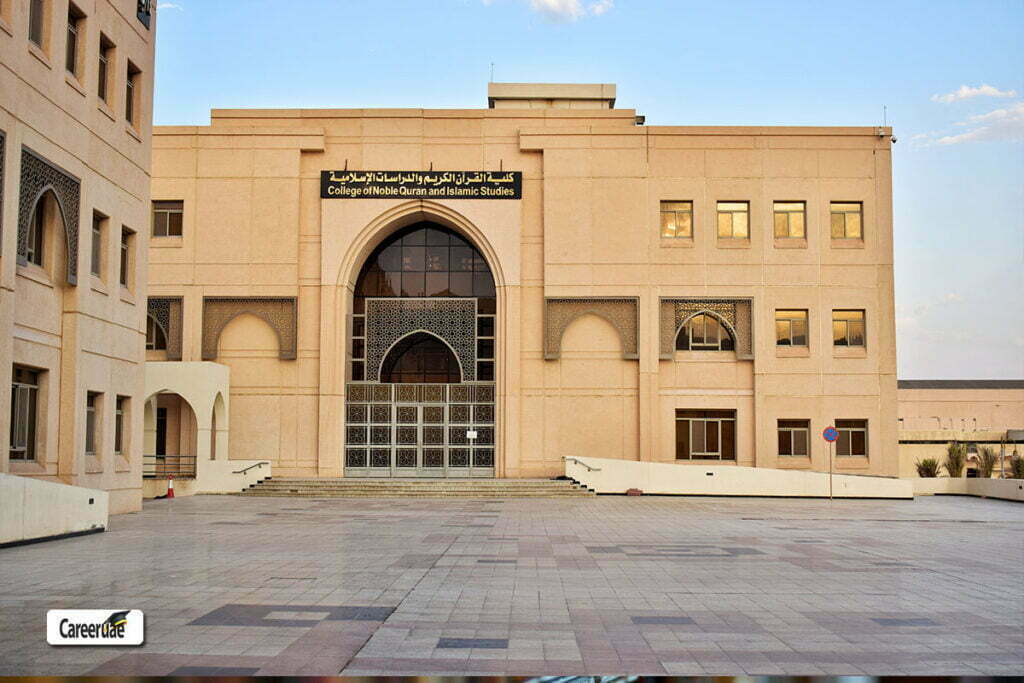Admission to universities in the UAE is a comprehensive guide that provides accurate and concise information to help students navigate the admissions process successfully. In this guide, you will find all the essential details about the requirements, procedures, and deadlines for applying to universities in the UAE, as well as tips for writing an impressive personal statement and preparing for entrance exams.
Whether you are a local student or an international applicant, this guide will assist you in understanding the various options available and making informed decisions about your higher education journey in the UAE.
Understanding The University Admission Process In The UAE
Discover the ins and outs of the UAE university admission process with this comprehensive guide. Learn about application requirements, deadlines, and tips for a successful application. Take the first step towards pursuing your dream education in the UAE.
Choosing the right university is a crucial step in shaping your future. The united arab emirates (UAE) offers a wide range of universities and programs for all kinds of students. However, navigating the university admission process can be overwhelming if you don’t know where to start.
To help you, this guide will break down the process into three important factors: considering university options, researching programs, and understanding the admission criteria. So, let’s dive in and explore these steps in detail.
Important Factors To Consider When Choosing A University:
When deciding which university to apply to, there are several crucial factors to keep in mind. These factors will impact your overall university experience and can significantly influence your educational and career goals. Here are some key aspects to consider:
- Location: Consider whether you prefer a university close to home or are open to studying in a different city or even country.
- Reputation: Look for universities with a strong reputation and accreditation to ensure the quality of education.
- Program offerings: Research the various programs available to find one that aligns with your interests and career aspirations.
- Facilities and resources: Evaluate the university’s infrastructure, libraries, laboratories, computer facilities, and student support services.
- Campus culture: Consider the campus environment, student life, extracurricular activities, and opportunities for personal growth.
- Affordability: Assess the tuition fees and any available scholarships or financial aid options.
Researching Universities And Their Programs:
Once you have a list of potential universities, it’s crucial to research each institution thoroughly. This will help you gain a deeper understanding of their programs and make an informed decision. Here’s how you can conduct effective research:
- University websites: Explore each university’s official website to learn about its history, mission, academic departments, faculty, and facilities.
- Program details: Dive into the specifics of each program, including course curriculum, delivery methods, specializations, and elective options.
- Alumni testimonials: Seek out testimonials or personal experiences from former students to gain insight into the quality of education and post-graduation opportunities.
- Rankings and accreditations: Look for rankings and accreditations to gauge the university’s reputation and standing in the academic world.
- Campus visits: If possible, plan a campus visit or attend virtual tours to get a feel for the environment and interact with faculty and students.

Application Requirements And Deadlines:
As you narrow down your choices, it’s crucial to familiarize yourself with the application requirements and deadlines for each university. Missing application deadlines can significantly impact your chances of admission. Here are some common requirements to look out for:
- Completed application form: Fill out the university’s application form accurately, providing all the required personal and academic information.
- Academic transcripts: Submit your official high school or previous university transcripts, demonstrating your academic achievements.
- Standardized test scores: Depending on the university and program, you may need to provide scores from standardized tests such as the SAT, ACT, or IELTS.
- Letters of recommendation: Request letters of recommendation from teachers or mentors who can speak to your academic abilities and character.
- Personal statement: Write a compelling personal statement that showcases your motivations, aspirations, and why you are a suitable candidate for the chosen program.
- Application fees: Be prepared to pay any application fees associated with each university.
Understanding The Admission Criteria:
Each university has specific admission criteria designed to evaluate applicants’ suitability for their programs. Understanding these criteria will help you tailor your application. Here are some common factors universities consider:
- Academic performance: Universities typically look at high school or previous university grades to assess your academic capabilities.
- Standardized test scores: Your performance in standardized tests will provide an additional measure of your aptitude and readiness for the program.
- Extracurricular activities: Your involvement in extracurricular activities such as sports, community service, or leadership roles can demonstrate your well-roundedness and commitment.
- Personal interviews: Some universities may conduct personal interviews to assess your communication skills, motivation, and suitability for the program.
- Language proficiency: As English is the main medium of instruction in many UAE universities, a good command of the English language may be required.
By considering important factors when choosing a university, conducting thorough research, adhering to application requirements, and understanding admission criteria, you will be well-prepared to navigate the university admission process in the UAE. Good luck on your journey to higher education!
Preparing For University Admission: Key Steps To Success
Discover the essential steps to successfully prepare for university admission in the UAE with this complete guide. From researching programs to writing personal statements, this comprehensive resource will help you navigate the competitive admissions process and increase your chances of acceptance.
Exploring potential majors and career paths:
- Research different majors and career options are available at universities in the UAE.
- Consider your interests, passions, and skills when exploring potential areas of study.
- Attend career fairs, workshops, and informational sessions to gain insights into various industries.
- Seek advice from professionals working in fields you are interested in to gain a better understanding of the career path.
- Reflect on your long-term goals and aspirations to help narrow down your options.
Building a strong academic profile:
- Take challenging courses in high school that align with your intended major.
- Aim for strong grades, as universities often consider your academic performance during the admission process.
- Seek additional academic support if needed, such as tutoring or attending study groups.
- Participate actively in class discussions and engage with the material beyond what is required.
- Consider pursuing advanced placement (ap) or international baccalaureate (ib) courses to demonstrate your academic rigor.
Enhancing extracurricular activities and leadership skills:
- Participate in activities that showcase your interests, talents, and leadership abilities.
- Join clubs, sports teams, or student organizations that align with your passions.
- Take on leadership roles within these extracurriculars to demonstrate your ability to lead and collaborate.
- Engage in community service or volunteer work to show your commitment to making a positive impact.
- Keep a record of your involvement and any achievements or accolades you receive.
Preparing for standardized tests (SAT, ACT, etc. ):
- Become familiar with the standardized tests required by universities in the UAE, such as the SAT or ACT.
- Sign up for test preparation courses or utilize online resources to help you excel in these exams.
- Create a study schedule and allocate dedicated time for test practice and review.
- Consider taking practice tests to familiarize yourself with the test format and identify areas for improvement.
- Focus on building strong critical thinking, problem-solving, and test-taking skills.
Seeking guidance from school counselors and mentors:
- Reach out to your school counselors for guidance on the university admission process.
- Discuss your academic and career goals with them to receive personalized advice and support.
- Maintain regular communication with mentors who can provide valuable insights and guidance.
- Seek their assistance in identifying suitable universities and potential scholarship opportunities.
- Utilize their expertise to navigate the overall admission journey successfully.
By following these key steps, you can better prepare yourself for university admission in the UAE. Remember, it is important to start early, stay organized, and maintain a proactive approach throughout the process. Good luck!
Crafting A Standout University Application
Crafting a standout university application in UAE is a complete guide filled with valuable tips and advice to increase your chances of admission. This comprehensive resource covers everything from selecting the right university to writing an impressive personal statement, ensuring your application stands out in a competitive pool of applicants.
Crafting a standout university application is crucial to increasing your chances of getting admitted to your desired university in the UAE. Your application should showcase your unique qualities, academic achievements, dedication to community service, and strong recommendation letters. Here are some essential components to include in your application:
Writing A Compelling Personal Statement:
Your personal statement is an opportunity to showcase your personality, aspirations, and motivations to the admissions committee. Make sure to:
- Clearly express your goals and why you are interested in the specific university program.
- Share personal experiences or challenges that have shaped your character and helped you develop a strong passion for your chosen field.
- Highlight any unique perspectives or qualities that make you stand out from other applicants.
Highlighting Academic Achievements And Honors:
Your academic achievements play a vital role in demonstrating your commitment to excellence. Here’s how to effectively highlight them:
- List your academic honors, awards, scholarships, and high grades in relevant subjects.
- Provide details about any research projects, coursework, or academic clubs that have contributed to your intellectual growth.
- Discuss any challenging coursework or independent studies that have expanded your knowledge in your intended major.
Showcasing Involvement In Community Service And Volunteer Work:
Admissions committees appreciate candidates who not only excel academically but also actively contribute to their communities. Consider the following:
- Describe your involvement in community service or volunteer work, emphasizing the impact it had on others.
- Highlight any leadership roles or initiatives you took, demonstrating your ability to organize and inspire others.
- Discuss how your community service experience has shaped your values, perspectives, and desire to make a difference.
Requesting Strong Recommendation Letters:
Strong recommendation letters can provide valuable insights into your character, academic abilities, and potential for success. Here’s how to obtain them:
- Choose recommenders who have firsthand knowledge of your academic performance, character, and future potential.
- Request letters from teachers, employers, or mentors who can speak to your strengths, achievements, and unique qualities.
- Provide recommenders with relevant information about your accomplishments, goals, and specific areas they should focus on in their letters.

Putting Together A Comprehensive Resume:
A comprehensive resume allows you to present a well-rounded view of your achievements and experiences. Consider the following tips:
- Include your educational background, relevant coursework, academic projects, and research experience.
- Highlight any internships, part-time jobs, or extracurricular activities that have contributed to your personal and professional development.
- Provide details about any leadership positions, organizational memberships, or awards you have received.
Crafting a standout university application requires careful consideration and attention to detail. By following these guidelines and effectively showcasing your unique qualities, achievements, and experiences, you’ll increase your chances of catching the attention of admissions committees in the UAE.
Preparing For University Admission Interviews
This comprehensive guide provides valuable insights and tips on how to prepare for university admission interviews in the UAE. It offers guidance on the interview process, common questions, and strategies to showcase your skills and qualifications effectively. Master the art of interview preparation and increase your chances of securing admission to your desired university.
Researching The University And Its Interview Format:
- Before the university admission interview, it is crucial to conduct thorough research on the university and its interview format. This will help you prepare adequately and feel more confident during the interview. Here are some important points to consider:
- Look up the university’s website and explore the admission section. Pay attention to any specific guidelines or requirements mentioned for the interview process.
- Familiarize yourself with the university’s mission, values, and academic programs. This will demonstrate your genuine interest and passion for the institution.
- Find out if the university conducts traditional face-to-face interviews or if they use other formats such as online or panel interviews.
- Check if there are any specific areas of focus for the interview, such as personal achievements, leadership skills, or extracurricular activities.
- Take note of any common interview questions that previous applicants have shared online. This will give you an idea of what to expect and how to prepare.
Anticipating Common Interview Questions:
- While it is impossible to know exactly what questions will be asked during the university admission interview, there are some common ones that you can anticipate and prepare for. Here are a few examples:
- Tell me about yourself: Be prepared to provide a brief overview of your background, education, interests, and future goals.
- Why do you want to attend this university? Showcase your knowledge and genuine interest in the university by highlighting specific programs, faculty, or research opportunities that align with your academic and career aspirations.
- What are your strengths and weaknesses? Identify a few key strengths that are relevant to your chosen field of study and demonstrate how you have worked on improving your weaknesses.
- Describe a challenging situation you faced and how you overcame it. Select a situation that highlights your problem-solving skills, resilience, and ability to learn from difficult experiences.
Practicing Interview Etiquette And Body Language:
- Apart from preparing answers to potential questions, it is essential to practice interview etiquette and maintain confident body language throughout the interview. Here are some tips to consider:
- Dress professionally: Make sure to wear appropriate attire that reflects your seriousness and respect for the interview process.
- Practice good posture: Sit up straight and maintain eye contact with the interviewer to show attentiveness and engagement.
- Use positive body language: Smile, nod, and use hand gestures sparingly to convey your enthusiasm and interest.
- Practice active listening: Show genuine interest in the interviewer’s questions and provide thoughtful responses. Avoid interrupting and take your time to formulate your answers.
- Express gratitude: Remember to thank the interviewer for their time and consideration at the end of the interview.
Showcasing Confidence And Authenticity:
- During the university admission interview, it is important to showcase your confidence and authenticity. Here are a few tips to help you make a strong impression:
- Be prepared but not rehearsed: Practice your answers beforehand, but avoid sounding robotic or rehearsed during the interview. Let your personality shine through.
- Speak with conviction: Clearly articulate your thoughts and ideas, using appropriate vocabulary and tone. Avoid filler words and strive to express yourself with clarity.
- Be authentic: Share your genuine experiences, passion, and aspirations. This will make you stand out and help the interviewer understand your unique qualities.
- Be positive and adaptable: If faced with challenging questions, maintain a positive attitude and demonstrate your ability to adapt and learn from difficult situations.
- Remember, the university admission interview is an opportunity for you to showcase your potential and suitability for the institution. Preparation, confidence, and authenticity are key to making a lasting impression. Good luck!
Tips For A Successful University Admission Interview
Prepare for a successful university admission interview with these valuable tips. From researching the university to practicing your responses, this guide provides all the necessary advice to ace your UAE university interview.
Sharing personal experiences and anecdotes:
- Begin the interview by sharing a personal story related to your interest in the field of study. This will help create a personal connection with the interviewer.
- Share any relevant experiences, such as internships, volunteering, or extracurricular activities, that have shaped your passion for the chosen field.
- Use anecdotes to showcase specific skills or qualities that make you a strong candidate.
Demonstrating passion and enthusiasm for your chosen field:
- Show genuine enthusiasm and excitement when discussing your chosen field of study.
- Highlight any personal projects, research, or initiatives you have undertaken to demonstrate your passion for the subject.
- Use positive language and confident body language to convey your dedication and excitement.
Discussing future goals and aspirations:
- Clearly articulate your academic and career goals, demonstrating how they align with the university’s programs and opportunities.
- Share your long-term aspirations and how the university can help you achieve them.
- Discuss how you plan to contribute to the field or society as a result of your studies at the university.
Asking thoughtful questions to the interviewer:
- Prepare a list of relevant questions to ask the interviewer to demonstrate your interest and curiosity.
- Ask about specific programs, research opportunities, internships, or alumni networks that align with your goals.
- Show appreciation for the opportunity to learn more about the university and convey your enthusiasm about becoming part of the community.
Remember, the university admission interview is a chance for you to showcase your personality, passion, and potential. By sharing personal experiences, demonstrating enthusiasm, discussing future goals, and asking thoughtful questions, you can make a lasting impression on the interviewer and increase your chances of a successful university admission.
Understanding Tuition Fees And Scholarships
Get a complete guide to admission to universities in the UAE, including information on understanding tuition fees and scholarships. Discover everything you need to know about the cost of education and funding opportunities in the UAE.
Are you considering pursuing higher education in the UAE but unsure about the cost of tuition and how to fund your studies? In this section, we will delve into the essential aspects of tuition fees and scholarships so that you can make informed decisions about your educational journey.
Exploring Different Types Of Scholarships And Grants:
When it comes to financing your education, scholarships and grants can significantly lighten your financial burden. Here are the various types of scholarships and grants available in the UAE:
- Merit-based scholarships: These scholarships are awarded to students who excel academically or demonstrate exceptional talent in a particular field.
- Need-based scholarships: Designed for students with limited financial resources, these scholarships provide financial assistance to cover tuition fees and other educational expenses.
- Sports scholarships: If you are a talented athlete, you may be eligible for sports scholarships. These scholarships are awarded based on your athletic abilities and potential contributions to the university’s sports programs.
- Minority scholarships: Some universities offer scholarships specifically targeted towards minority groups to promote diversity and inclusivity.
- Research grants: If you are pursuing a research-oriented program, you may have the opportunity to apply for research grants. These grants fund your research projects and cover additional expenses.
Researching Financial Aid Options:
Before starting the application process, it is crucial to thoroughly research the financial aid options available at your chosen universities. Here are some key steps you should follow:
- Visit university websites: Explore the financial aid and scholarships section of university websites to gather information on available funding opportunities.
- Contact university representatives: Reach out to university representatives via email or phone to inquire about specific scholarships, grants, and financial aid packages.
- Attend university fairs and information sessions: Attending these events can provide you with valuable insights into the financial aid options offered by different universities.
Calculating The Total Cost Of Attendance:
To effectively plan your finances, it is essential to calculate the total cost of attendance, which includes not only tuition fees but also other expenses associated with university life. Here are the factors you should consider:
- Tuition fees: Determine the annual or semester-based tuition fees for your desired program.
- Accommodation expenses: Consider the cost of on-campus or off-campus housing, including rent, utilities, and other related expenses.
- Books and supplies: Estimate the cost of textbooks, stationery, and other study materials required for your program.
- Transportation costs: Account for commuting expenses or public transportation fees.
- Living expenses: Calculate the cost of meals, healthcare, personal necessities, and entertainment.
Managing Student Loans And Debt:
If scholarships and grants do not cover the entirety of your educational expenses, student loans can be a viable option. However, it is crucial to manage them wisely to avoid excessive debt. Here are some tips for managing student loans:
- Understand the terms and conditions: Familiarize yourself with the loan repayment terms, interest rates, and any additional fees associated with the loan.
- Borrow only what you need: Avoid borrowing more than necessary to minimize the amount of debt you accumulate.
- Develop a repayment plan: Create a repayment plan that aligns with your financial situation and goals, ensuring prompt repayment to avoid any negative consequences.
By understanding tuition fees and scholarships, conducting thorough research on financial aid options, calculating the total cost of attendance, and managing student loans responsibly, you can navigate the financial aspect of university admission in the UAE with confidence. Remember to explore all available resources and seek guidance from university representatives to make the best decisions for your educational journey.

Alternative Options: Work-Study Programs And Part-Time Jobs
Discover alternative options for financing your education in the UAE with work-study programs and part-time jobs. This complete guide provides valuable insights on admission to universities, offering practical solutions for students seeking financial independence.
Exploring Work-Study Opportunities On Campus
- Work-study programs offered by universities in the UAE provide students with a chance to gain valuable work experience while earning money to support their education.
- These programs typically offer part-time jobs on campus, giving students the opportunity to apply their classroom knowledge in a practical setting.
- Here are some key benefits of exploring work-study opportunities on campus:
- Build a strong resume: Work-study programs allow students to gain practical skills and relevant work experience, which can enhance their resumes and increase their employability after graduation.
- Financial support: By working part-time through a work-study program, students can earn money to cover their expenses and reduce the burden of student loans or financial dependency on their families.
- Convenient schedule: On-campus work-study programs often prioritize students’ academic responsibilities and provide flexible work hours, allowing them to balance their studies and work commitments effectively.
Balancing Academics And Part-Time Employment
- Balancing academics and part-time employment can be challenging, but with proper planning and time management, it is definitely achievable. Consider the following strategies:
- Create a schedule: Plan your time wisely, allocate specific hours for studying, attending classes, and working part-time. This will help you stay organized and ensure that you meet all your commitments.
- Prioritize tasks: Identify your most crucial academic tasks and allocate more time for those. Break down big assignments into smaller, manageable tasks to avoid feeling overwhelmed.
- Seek support: Reach out to professors or academic advisors if you need guidance or additional resources to manage your workload effectively. They can provide valuable insights and support to help you succeed in both your academics and part-time employment.
Gaining Valuable Work Experience While Studying
- Engaging in part-time employment alongside your studies not only provides financial support but also offers valuable work experience. Here are some key benefits of gaining work experience while studying:
- Practical application: By working part-time, you can apply the theoretical concepts learned in the classroom to real-world scenarios. This practical experience enhances your understanding and makes your academic knowledge more relevant.
- Networking opportunities: Part-time employment allows you to interact with professionals in your field of interest and build a network of contacts. These connections can open doors to future job opportunities and career growth.
- Transferable skills: Through part-time employment, you can develop essential skills such as time management, teamwork, communication, and problem-solving. These skills are highly valued by employers and can increase your marketability after graduation.
Remember, exploring work-study programs and part-time jobs can provide you with valuable experiences, financial support, and a competitive edge in the job market. Embrace these opportunities and make the most out of your university journey in the UAE!
Orientation Programs And Campus Resources
Discover the comprehensive guide to admission in UAE universities, including orientation programs and campus resources. Gain valuable insights, tips, and information to navigate the admission process with ease.
Participating In University Orientation Programs
Attending orientation programs is a crucial step for a smooth transition into university life. These programs provide valuable insights into campus culture, academic expectations, and available resources. Here are key points to consider:
- Participate in orientation sessions led by faculty and staff:
- Gain important information about your program, course requirements, and academic policies.
- Familiarize yourself with the university’s mission, vision, and values.
- Learn about extracurricular activities, clubs, and student organizations.
- Connect with fellow students:
- Engage in team-building activities to establish new friendships.
- Take advantage of networking opportunities to build a support system.
- Exchange contact information to facilitate future collaboration and study groups.
- Explore the campus:
- Take a campus tour to become familiar with important locations such as libraries, lecture halls, and student centers.
- Identify key services like the registrar’s office, health center, and career counseling.
Familiarizing Yourself With Campus Facilities And Services
Understanding the various facilities and services available on campus is vital for your academic and personal success. Consider the following:
- Library resources:
- Familiarize yourself with the library’s online and physical collections.
- Learn about borrowing policies, access to research databases, and study spaces.
- Seek guidance from librarians for research assistance and citation support.
- Sports and recreation facilities:
- Discover opportunities for physical activity, such as fitness centers, sports clubs, and intramural leagues.
- Explore recreational spaces for relaxation and socialization, such as student lounges and outdoor areas.
- Student support services:
- Learn about counseling and mental health services for academic and personal well-being.
- Seek assistance from the career services department for internships, job placements, and professional development.
- Utilize tutoring services for academic support and enhancing your learning experience.
Seeking Academic And Personal Support Resources
It’s important to seek out resources that can support your academic and personal journey throughout university. Consider the following points:
- Academic advisers:
- Connect with your assigned academic adviser to discuss your academic goals and plan your course selections.
- Consult with them regularly for guidance on major/minor requirements, graduation plans, and academic challenges or concerns.
- Peer mentoring programs:
- Take advantage of peer mentoring programs to receive guidance and support from experienced students.
- Mentors can provide insights into navigating university life, study strategies, and time management techniques.
- Writing and learning centers:
- Visit writing centers to improve your writing skills, receive feedback on assignments, and learn effective study techniques.
- Engage with learning centers to enhance your understanding of course materials through workshops and tutoring sessions.
Remember, participating in orientation programs, familiarizing yourself with campus facilities and services, and seeking academic and personal support are essential steps towards making the most of your university experience. Embrace these opportunities to thrive academically and personally.
Building A Supportive Network And Getting Involved
Discover how building a strong support network and actively engaging in university life can enhance your admission experience. This complete guide provides valuable insights and tips for navigating the admission process in UAE universities, helping you make the most of your opportunities.
Joining student clubs and organizations:
- Explore various student clubs and organizations available at universities in the UAE.
- Joining a club or organization can provide opportunities to meet like-minded individuals with similar interests.
- Student clubs and organizations offer a platform to build connections, enhance social skills, and expand your network.
- Engage in activities and events organized by these clubs to gain valuable experiences and learn from others.
Networking with fellow students and faculty members:
- Connect with your peers and faculty members to establish a strong support system.
- Attend social events and academic gatherings to meet new people and widen your network.
- Participate in group discussions and collaborative projects to build relationships and exchange knowledge.
- Connecting with faculty members can provide mentorship, guidance, and valuable insights into your field of study.
Participating in extracurricular activities and events:
- Get involved in extracurricular activities and events to enhance your overall university experience.
- These activities can include sports, arts, cultural events, community service projects, and more.
- Participating in extracurricular activities allows you to develop new skills, boost your confidence, and create long-lasting memories.
- Engaging in these activities also helps you enhance your resume and showcase your extracurricular involvement to potential employers.
By joining student clubs and organizations, networking with fellow students and faculty members, and participating in extracurricular activities and events, you can build a supportive network and get involved in university life. These experiences will contribute to your personal growth, enhance your social skills, and make your university journey more fulfilling.
Embracing The Cultural Experience Of Studying In The UAE
Discover the rich cultural experience of studying in the UAE. Our complete guide provides all the information you need for admission to universities in the UAE.
Celebrating Cultural Diversity On Campus:
- The universities in the UAE are known for their diverse student population, comprising individuals from various cultural backgrounds, creating a rich and vibrant campus environment.
- Students have the opportunity to engage with peers from different cultures, celebrating diversity and fostering mutual understanding.
- Cultural festivals and events are organized on campus, providing a platform for students to showcase their traditions, music, dance, and cuisine.
- Campus clubs and organizations focus on promoting cultural awareness and inclusivity, offering students a chance to learn and appreciate different customs and traditions.
- By celebrating cultural diversity, students broaden their horizons, gain insights into different perspectives, and develop a global mindset.
Exploring Local Traditions And Customs:
- Studying in the UAE provides an excellent opportunity for international students to immerse themselves in a rich tapestry of local traditions and customs.
- Students can experience the emirati culture firsthand by participating in activities such as traditional dance performances, traditional attire dressing, and henna painting.
- Local souks (markets) offer students a chance to explore traditional crafts, spices, and textiles, while gaining a deeper understanding of the region’s heritage.
- Traditional food festivals and culinary workshops allow students to savor authentic emirati cuisine and learn about the significance of traditional dishes.
- Exploring local traditions and customs enhances the overall educational experience, as students gain a deeper appreciation for the host country’s heritage and cultural identity.
Engaging In Community Service Initiatives:
- Universities in the UAE emphasize the importance of community service and encourage students to actively participate in various initiatives.
- Students have the opportunity to give back to the local community through volunteering programs aimed at addressing social issues and improving the lives of others.
- Community service initiatives may include tutoring programs for underprivileged children, environmental conservation projects, and assisting local charities and non-profit organizations.
- By engaging in community service, students develop empathy, leadership skills, and a sense of social responsibility.
- These initiatives also provide students with a chance to interact with local residents, fostering meaningful connections and deepening their understanding of the UAE’s societal fabric.
Remember to proofread your work for grammar and spelling errors before publishing!
Frequently Asked Questions Of Admission To Universities In The UAE: A Complete Guide
“What Are The Admission Requirements For Universities In The UAE?”
To gain admission to universities in the UAE, students need to submit their high school transcripts, standardized test scores, recommendation letters, and a personal statement. Some universities may also require an entrance exam or an interview.
“Are There Any Language Requirements For International Students?”
Yes, international applicants are usually required to provide proof of english language proficiency through tests such as toefl or ielts. Some universities may also offer english language preparation courses for students who do not meet the required levels.
“How Do I Apply For A Student Visa In The UAE?”
To apply for a student visa in the UAE, you will need to have an admission letter from a recognized university, a valid passport, photographs, and medical fitness documents. You will also need to pay the visa application fee and follow the specific procedures outlined by the UAE immigration authorities.
“What Financial Aid Options Are Available For International Students?”
Many universities in the UAE offer scholarships and grants to international students based on academic merit or other criteria. Additionally, students can explore external scholarship programs or consider part-time work opportunities to help fund their education.
“Can I Transfer Credits From Another University To One In The UAE?”
Some universities in the UAE may allow the transfer of credits from other recognized institutions, subject to evaluation and approval. Students would need to provide official transcripts, course descriptions, and other relevant documents for the evaluation process. It is important to check with the respective universities for their specific transfer credit policies.
Conclusion
This comprehensive guide has provided valuable insights into the process of admission to universities in the UAE. By understanding the requirements, application procedures, and selection criteria discussed throughout this blog post, prospective students can navigate the admission process with confidence.
Planning ahead, focusing on academic achievements and personal growth, and effectively showcasing strengths through application documents and interviews are key factors for success. It is essential to research and target suitable universities and programs, as well as to seek guidance from counselors and mentors, to ensure the best possible chances of admission.
The UAE offers a range of world-class universities with diverse academic offerings, and with the right preparation and determination, students can access excellent educational opportunities in this dynamic and culturally rich nation. As the higher education landscape continues to evolve, staying informed and proactive will undoubtedly maximize one’s chances of obtaining admission to a university in the UAE.






Comments are closed.